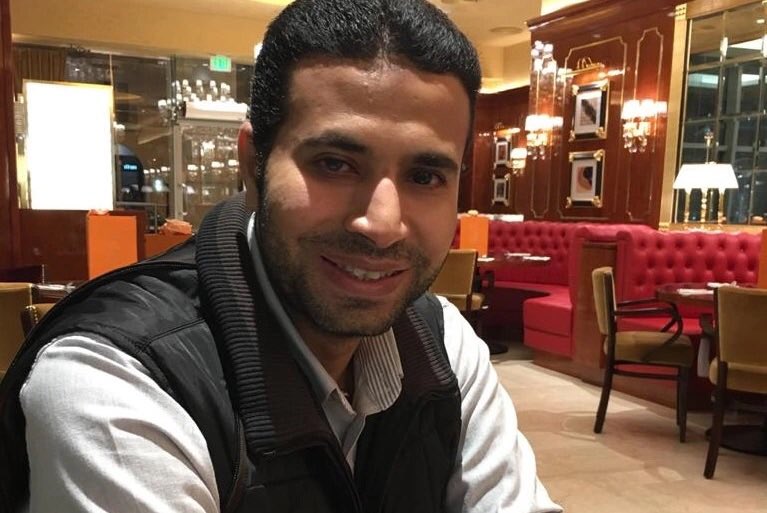The Qatar-based network has urged Egyptian authorities to release its journalists.
Egyptian authorities have annulled the decision to release Al Jazeera Mubasher journalist Hisham Abdelaziz without citing reasons, his family have said, according to Al Jazeera.
This comes following last week’s news of authorities in Cairo reportedly releasing Abdelaziz and 40 other prisoners.
However, his family this week said the decision has been reversed.
“The lawyer has just informed me that the decision to release Hisham was cancelled as if it had not happened. Hisham is still imprisoned pending the case 1956 of 2019, and he is the only accused in it. We do not even know the reason for that,” Abdelaziz’s wife,” Samira Al-Taher said in a tweet on Friday.
Al-Taher added that by next June, Hisham will complete fours years in pre-trial detention.
Abdelaziz was arrested in Cairo International Airport on 20 June 2019 and was accused of “joining a terrorist group”, an allegation often used by the regime in Cairo to crack down on journalists and political dissidents.
He was then subjected to enforced disappearance for almost a month and his family and friends were given no information regarding his whereabouts or condition.
In 2021, Abdelaziz’s health condition worsened after suffering from glaucoma in his eyes and required urgent surgery to prevent the complete loss of his eyesight. He also contracted otosclerosis, a condition that could seriously harm the ability to hear.
Authorities in Cairo renewed the prison sentence of Abdelaziz and his colleagues earlier this month for an extended 45 days. The periodic renewal of 15-to-45 days is a widely known tactic often used by the Egyptian regime.
In a previous statement, Al Jazeera revealed that Ibrahim was subjected to “enforced disappearance, torture, and solitary confinement, while being blindfolded and handcuffed.”
The fate of his detained Al Jazeera colleagues Rabie El-Sheikh and Bahauddin Ibrahim, however, remains unclear.
El-Sheikh, for instance, has been behind bars for the past 20 months following his arrest in 2021, when he travelled to Cairo for a family visit and Ibrahim was arrested in Alexandria in 2020.
Separately, in May last year, an Egyptian court sentenced Doha-based Al Jazeera presenter Ahmed Taha to 15 years in prison in absentia.
Taha was sentenced over claims of “spreading false news” during an interview with Abdul Moneim Aboul Fotouh, a leading opposition figure and former 2018 presidential candidate.
Egypt is one of the world’s worst jailers of journalists, with many spending years in jail and solitary confinement without being formally charged or tried, according to Reporters Without Borders (RSF).
Egypt’s extensions of the journalists comes despite rapprochement between Doha and Cairo following the 2017 dispute. At the time, Egypt joined Saudi Arabia, the United Arab Emirates, and Bahrain in severing ties with Qatar and imposed an illegal air, land and sea blockade on the Gulf state.
Shutting down its landmark Al Jazeera network was among a list of 13 demands presented by the quartet in exchange for the lifting of the embargo. However, Doha rejected all 13 conditions.
Ties between Doha and Cairo began to thaw shortly after the signing of the Al Ula Declaration in 2021, with Al Jazeera resuming its broadcasts from Egypt months later.
The network’s bureau in Egypt was shut down in September 2013 as Al Jazeera rallied to provide in-depth reporting on scenes in Cairo at the height of the 2011 Arab Spring.
Al Jazeera has been subjected to violations of media freedom since the 2013 military coup that saw current Egyptian President Abdel Fattah El-Sisi seize power from then-leader Mohamed Morsi—Egypt’s first democratically elected leader.
The Qatar-based network has urged Egyptian authorities to release its journalists as rights groups and Washington echo concerns over the prolonged detainments without trial.







